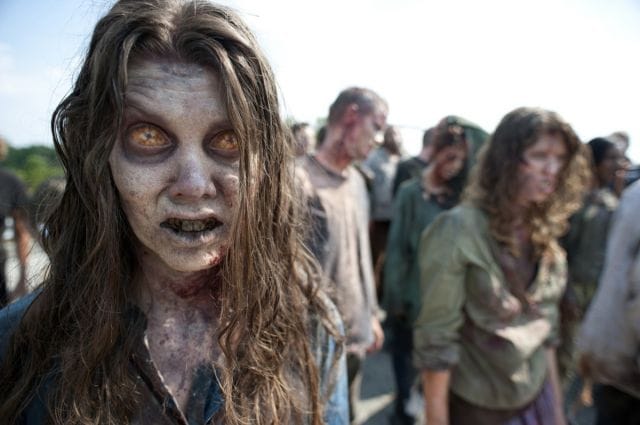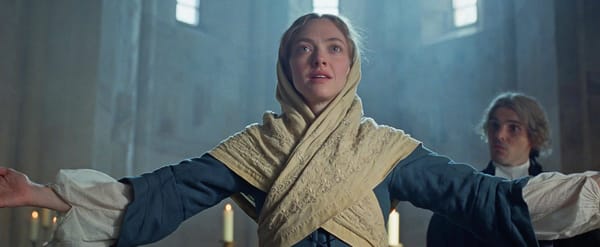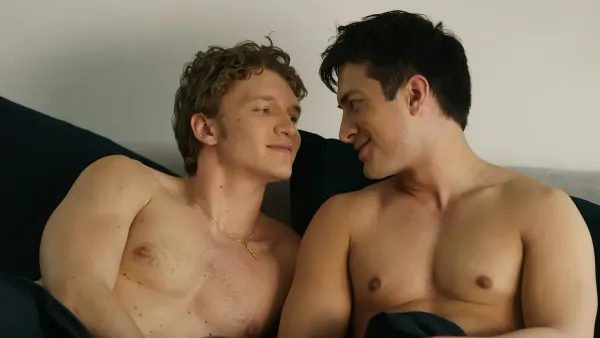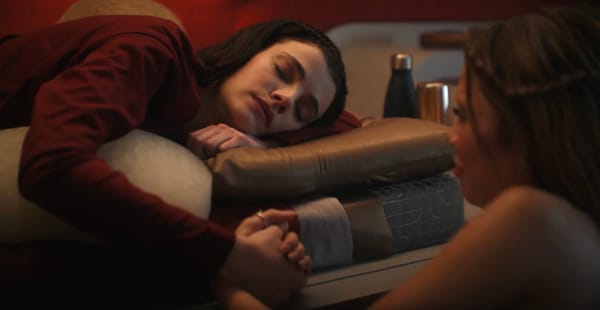Episodes: Why horror doesn't work on television

It's October, the start of my three favorite months of the year; the time when Halloween, Thanksgiving, and Christmas stuff all nestles comfortably next to each other at your local department store; and the perfect time to think about what's become, somewhat surprisingly, my favorite genre: horror.
I say "somewhat surprisingly" because I spent most of my childhood being terrified of just about anything with overly tense music. I've often mentioned being scared of the Garfield Halloween special, but I was also scared of that one where he goes into the woods and encounters a panther, which isn't really "spooky" per se. And, what's more, horror doesn't really work on my medium of choice, television.
Oh, sure, it looks like it does. You can point to any number of examples (most notably The X-Files, The Walking Dead, and American Horror Story) to say that, hey, people love horror on TV. But I would argue that when you dig around in the guts of these shows, they're much closer to other genres than you might expect. When people groaned about Fear the Walking Dead being a family drama, instead of a zombie show, I completely got why all involved were headed in that direction. TV is amenable to family dramas. It can't really support a classically structured zombie show.
I realize that what I'm saying must sound nuts. Isn't Walking Dead a zombie show? Yes and no. It's a zombie show in that it features zombies, but it's also not really a traditional zombie story, wherein the characters hole up in one place, then are eventually overwhelmed by the zombie horde. It is in the macro, in that that's the basic overarching story most seasons of the show have told, but if you look at the show on an episodic level, breaking it down to its structural bits and pieces, it's about two things, neither of which are zombies. The first is survival, the simple task of making sure life is safe and secure. The second is the question of how we stay human in a world that aims to strip us of that humanity.
The Walking Dead, in other words, is a TV Western. It's about characters perched on the edge of a frontier that threatens to sap everything human out of them. It's about people who are testing the bounds of civilization in a lawless area. And it's about what makes the social compact hold up when there's no real authority to enforce it. That's the idea behind everything from Gunsmoke to Deadwood, and it's thick within The Walking Dead's DNA. It's no wonder, then, that Rick Grimes wears a cowboy hat.
Similarly, The X-Files is a cop show, and American Horror Story varies from season to season but is perhaps best described as a satire (and usually a poor one). Its central idea is that of the Looney Tunes universe, where the characters can survive all manner of punishment and keep on ticking. I suspect much of the fan anxiety over AHS: Freak Show stemmed from how the series broke this cardinal rule of itself, where all of the characters would be around forever, an idea that grew to ludicrous heights in Coven.
Horror can work in individual episodes. This has been true since The Twilight Zone, and the world would be a less scary place without "Home" from The X-Files and "Hush" from Buffy. But what usually happens to dedicated TV horror is that viewers get tired of it and tune away. (Exhibit A: Twin Peaks, and that had enough of the soap opera to it that it should have had a fighting chance.)
The reason for this is simple. Horror is, by its nature, oppressive. It's a genre that builds tension and builds tension and builds tension, then has its release come all at once, in a cacophony. The roller coaster plunge is saved for the end, and we ride into the station bruised and thrilled. Yes, there can be smaller releases within the story itself. But the overall tone is either dread or hopelessness, and those are two things TV struggles to depict.
The fundamental fact of TV is always going to be that things snap back to roughly where they were eventually. The characters advance in increments, but they always end up in something resembling the status quo. This is, in many ways, more true to life than stories where everything changes. We are, most of us, in lives that repeat endless iterations of themselves. We can bear it, but the underlying fear is that we're hopeless to escape the spiral if we really need to. That's a fear horror movies can exploit, but horror TV struggles to deal with because it skirts too close to the things we don't want to think about in our own lives.
So horror can exist on TV, but mostly as a flavor. It's there in, say, the moments in Lost when the Island felt like a living thing. It's there when Walter White realizes Skyler has given away all of his money and finally snaps. It's there when Agent Cooper hears a story about good and evil. And, yes, it's sometimes there when the zombies burst out of nowhere on The Walking Dead.
But it can't always be there. The horror TV shows that work are the ones that disguise some other TV-friendly structure as a horror show. The ones that struggle are the ones that take those shows at face value.
--
Episodes is published daily, Monday through Friday, unless I don't feel like it. It is mostly about television, except when it's not. Suggest topics for future installments via email or on Twitter. Read more of my work at Vox Dot Com.




